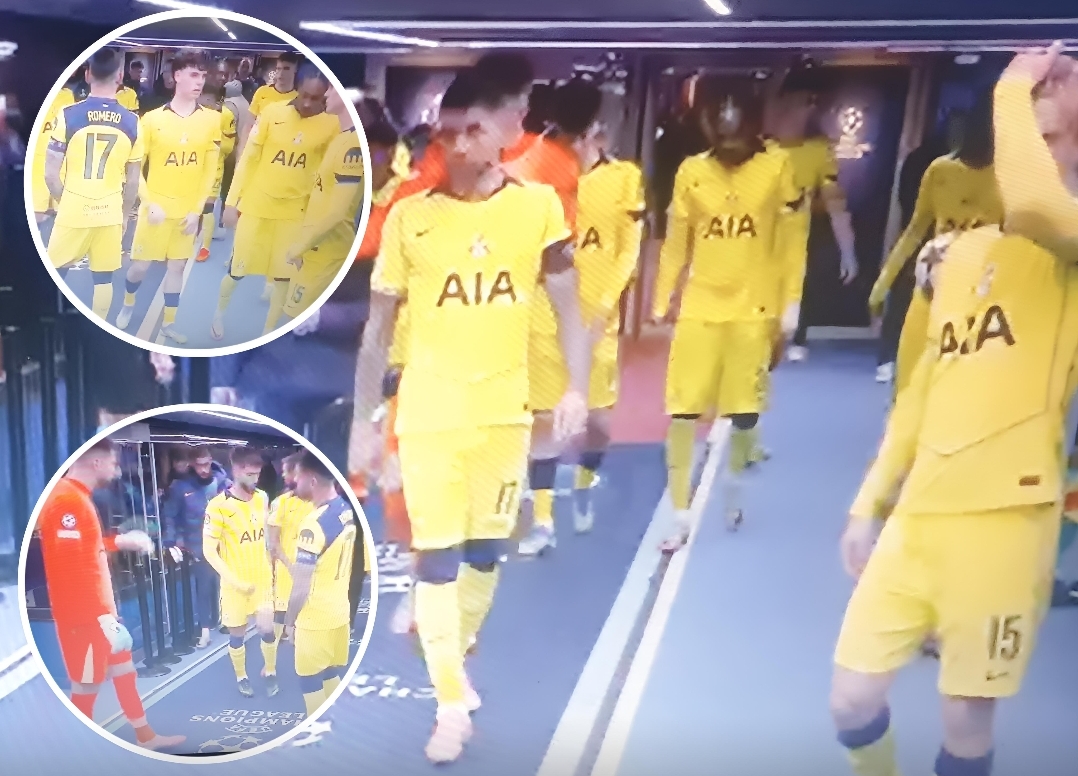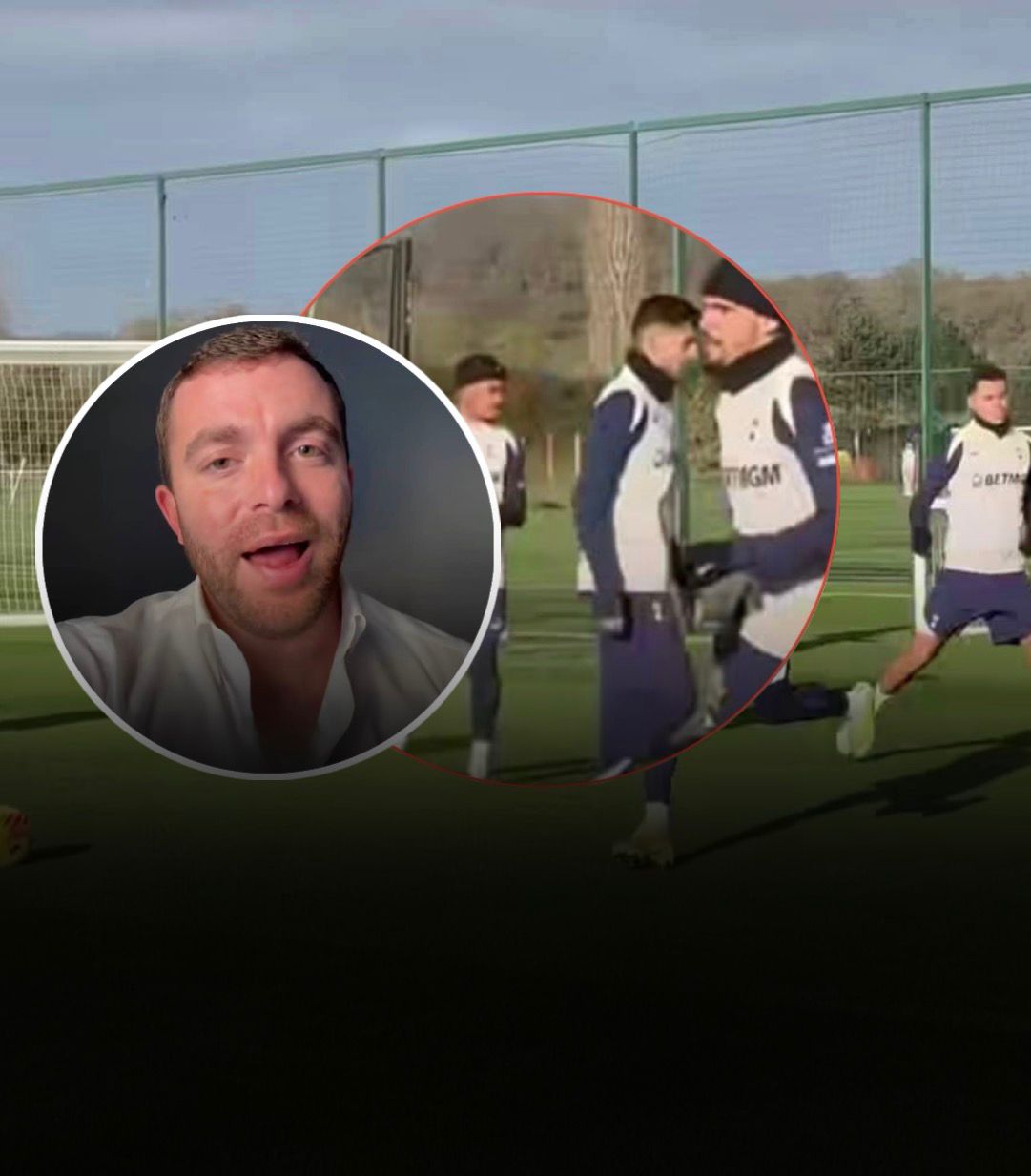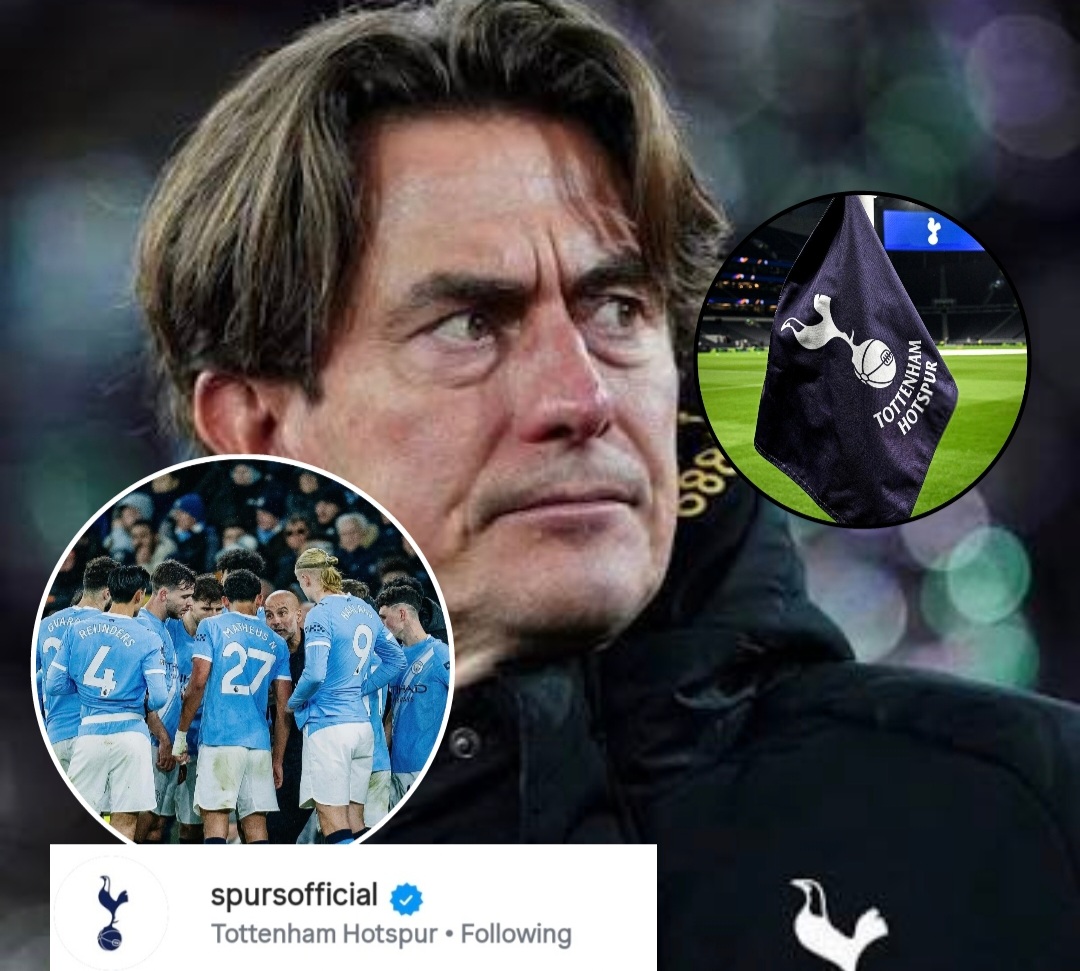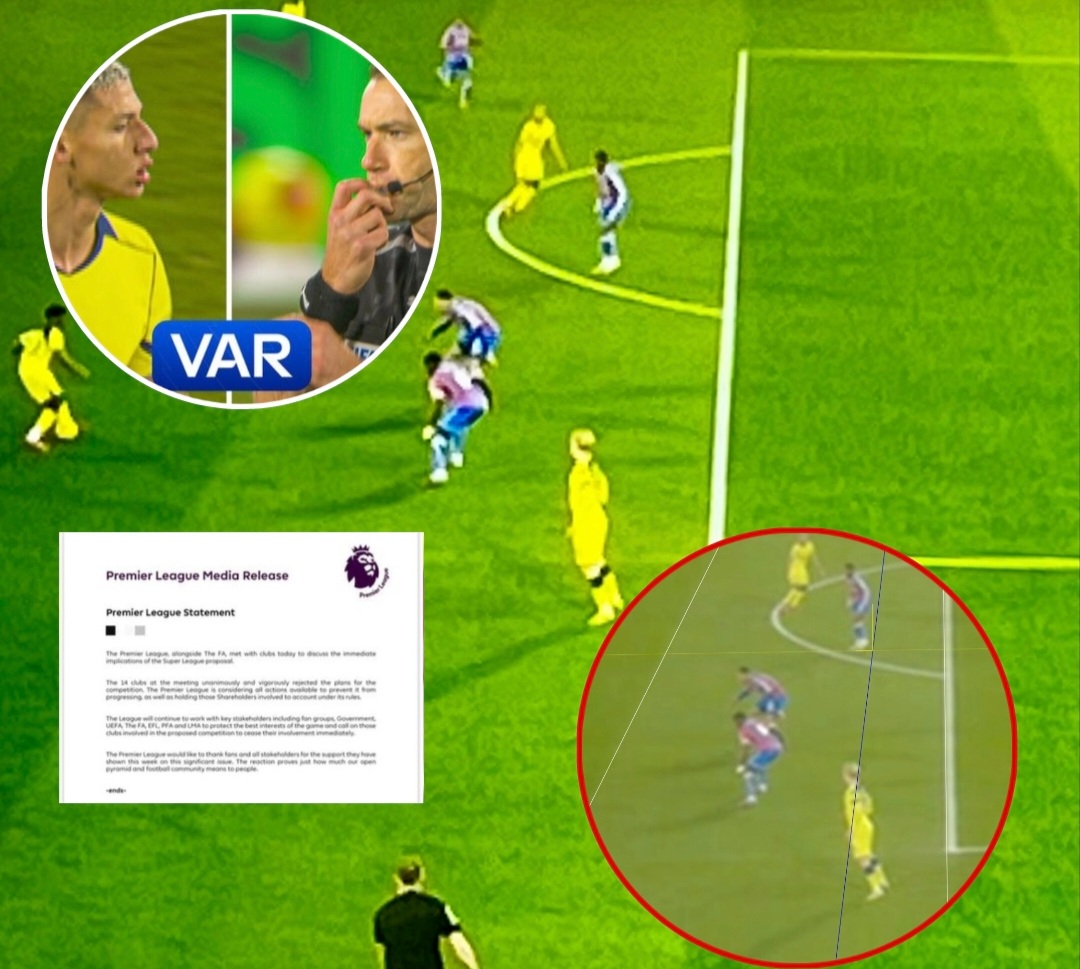WHAT HAPPENED AT HALF-TIME EXPLAINS EVERYTHING, TOTTENHAM INSIDER REVEALS WHY THE TEAM COLLAPSED
Tottenham Hotspur’s chaotic 5–3 defeat to Paris Saint-Germain in the Champions League has already been labelled one of the most bewildering collapses of the season. For 45 minutes, Spurs were bold, structured, and shockingly competitive. They went toe-to-toe with the French champions, scored twice in their own backyard, and genuinely unsettled a PSG side packed with elite technical quality. Yet the transformation that unfolded after the interval was so dramatic that even experienced pundits struggled to explain it. According to one Tottenham insider, understanding the collapse requires revisiting a singular moment: halftime.
The First-Half Looks Were Deceiving
At halftime, the match felt balanced. Spurs even took the lead through Richarlison, before PSG’s Vitinha equalized just before the break.
From that moment:
Tottenham’s attacking intent was clear. They showed aggressiveness and ambition — something cited post-match by their coach as part of “the identity we want to create.”
The midfield looked energetic, with reinforcements (fresh or returning players like Archie Gray and Lucas Bergvall) helping to sustain early pressure.
But all that hope masked a fragile foundation: by conceding twice after re-taking the lead, Spurs exposed structural cracks.
—
⚠️ The Collapse: Defensive Breakdown & Mental Fragility
As soon as the second half began, cracks appeared. The breakdown of what once seemed like a balanced, competitive Spurs side can be traced to a few critical failings:
Within two minutes of the restart, Vitinha struck again — a left-footed finish that exposed Tottenham’s defensive disorganization.
Soon after, slack marking allowed Fabián Ruiz to glide through and put PSG ahead. Spurs’ defenders had failed to track runners and stay tight — a cardinal sin at this level.
Then came a corner that curled into Spurs’ box — and Willian Pacho was left unmarked, finishing calmly to make it 4–2. The defensive disarray was now blatant: no communication, no shape, no discipline.
Even when Spurs thought they had momentum — with Randal Kolo Muani scoring his second to make it 4–3 — the response should have been to regroup. Instead, they contrived a penalty: a handball in the box by Cristian Romero brought Vitinha back for a hat-trick and sealed the comeback.
At that point, the game was effectively lost — but not just because of PSG’s quality.
Many pundits and insiders pointed out that what we saw wasn’t simply a turnaround — it was a collapse, of structure and spirit. Late in the game PSG even had a man sent off (red card for Lucas Hernandez), but by then the psychological defeat was done.
—
🎯 Tactical Gamble, But Costly Execution — A Familiar Pattern
According to Spurs’ boss Thomas Frank, the team attempted a bold, attacking approach — especially after their heavy loss to rivals in the Premier League.
He admitted there were positives: energy, intent, forward runs, goals.
But ultimately, the gamble failed. The same over-exertion that had reaped rewards in attack left the defence vulnerable. The repeated breakdowns point to a deeper issue: a lack of composure, control, and defensive maturity — qualities necessary against elite opposition like PSG.
It echoes a pattern from earlier this season (e.g. in their Super Cup loss against the same opponents), where Spurs surrendered leads late, under pressure.
—
📉 Bigger Picture: What This Collapse Reveals
This match was more than a high-scoring defeat — it was a litmus test showing where Spurs truly are.
Defensive instability: Against top teams, sloppy marking and disorganisation will be ruthlessly punished. Tonight proved that.
Mental fragility: Twice conceding after leading, then folding again after the equaliser — that speaks to a lack of psychological resilience.
Need for experience and structure: The youthful energy and attacking flair were real, but when the match swung, Spurs lacked seasoned heads to steady the ship.
Tactical identity is still a work in progress: The aggression and attacking mindset may be part of a long-term plan — but results like this show there’s work to do to balance thrill with control.
In short: the first 45 minutes revealed promise; the collapse that followed revealed reality.
—
📢 What Pundits & Insiders Are Saying
The post-match reaction from inside the Tottenham camp was cautiously optimistic. Frank praised the “identity,” spirit, and attacking intent — but acknowledged the defence “cannot concede those goals” if they want to win such games.
External observers were harsher: many described the match as a “collapse” rather than a loss. What looked like progress after the club’s previous drubbings ended up reinforcing fears: against elite sides, Spurs remain fragile.
Comments from fans and analysts alike emphasised that players repeatedly shirked defensive responsibility, and that the penalty conceded was a “gift.” Even a red card for the opposition couldn’t hide the deeper structural flaws.
—
🧠 Conclusion: Half-Time Showed Hope — Second Half Showed Where Spurs Are
The halftime equilibrium gave a glimpse of what Spurs could be: aggressive, bold, capable of competing. But the chaotic second half laid bare the harsh truth. Without defensive discipline, composure, and experience, all the attacking intention in the world won’t be enough.
This “collapse” wasn’t just a bad 45 minutes — it was a warning. Spurs may want to build an identity of flair and forward momentum, but until they fortify their defence and mental resilience, fixtures like last night will repeat.
If they want to seriously challenge Europe’s elite, tonight should serve as a blueprint — not of ambition, but of what needs fixing.








Post Comment